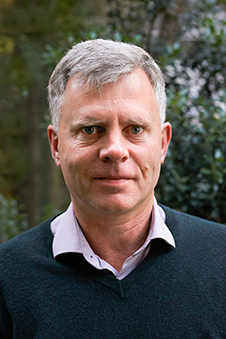Most infectious diseases have an Achilles heel, the secret is to find it. The question is, if we don't have a drug or a vaccine for COVID-19, is there something else we can do to beat it?

Professor Philip Hill.
As researchers we are trained to observe and carefully interpret multiple lines of evidence when analysing a health problem. In the current situation, evidence is accumulating rapidly. We can use health statistics describing what happened within China, comparing Hubei with the rest of the country. We can then compare these experiences with what happened in other Asian countries that have been successful in containing the virus. We can also draw conclusions from what is happening in Europe and the United States. Finally, we can attempt to reconcile this information with our evolving understanding of the properties of the virus and how they are different to the SARS coronavirus and to Influenza.
There are three key conclusions we can draw from the health statistics. Firstly, we can conclude from Hubei and Italy that not acting quickly and limiting activities to simply diagnosing and managing cases is potentially disastrous. Secondly, we can conclude from South Korea that even quite large outbreaks with community transmission can be brought under control. Thirdly, when we look at the various different measures employed by Asian countries who have been successful, there is one common intervention that stands out - it is called Rapid Case Contact Management. This is simply rapid early diagnosis of as many cases as possible and rapid early isolation of all their contacts. It doesn't even need to be 100 per cent perfect.

Associate Professor James Ussher.
COVID-19's Achilles heel appears to be an exquisite sensitivity to Rapid Case Contact Management, even after it has established large outbreaks. This ties in with what we are learning about the properties of the virus. Influenza pandemic plans use Rapid Case Contact Management early and move to case diagnosis and management only (abandoning contact tracing and isolation) soon after community transmission of the virus has been established. Evidence from Asia and the particular properties of the COVID-19 virus suggest that this would be disastrous for New Zealand. In New Zealand we have some of the best public health practitioners in the world, who do case contact management of infectious diseases all the time. What is required, apart from increasing capacity and sensitivity to diagnose COVID-19, is an urgent large expansion of our case contact management workforce. There are various ways to expand this workforce – including, for example, very fast (1 -2 days) training of people for this specific task under supervision, including possibly our own nursing and medical students. We have the opportunity to activate such a plan now before our current workforce becomes overwhelmed.
An editorial written by Professor Philip Hill, co-director at the Centre for International Health, Department of Preventive and Social Medicine at the Otago Medical School and Associate Professor James Ussher from the Department of Microbiology and Immunology at the University of Otago.
The article was first published on Newsroom
FIND an Otago Expert
Use our Media Expertise Database to find an Otago researcher for media comment.
